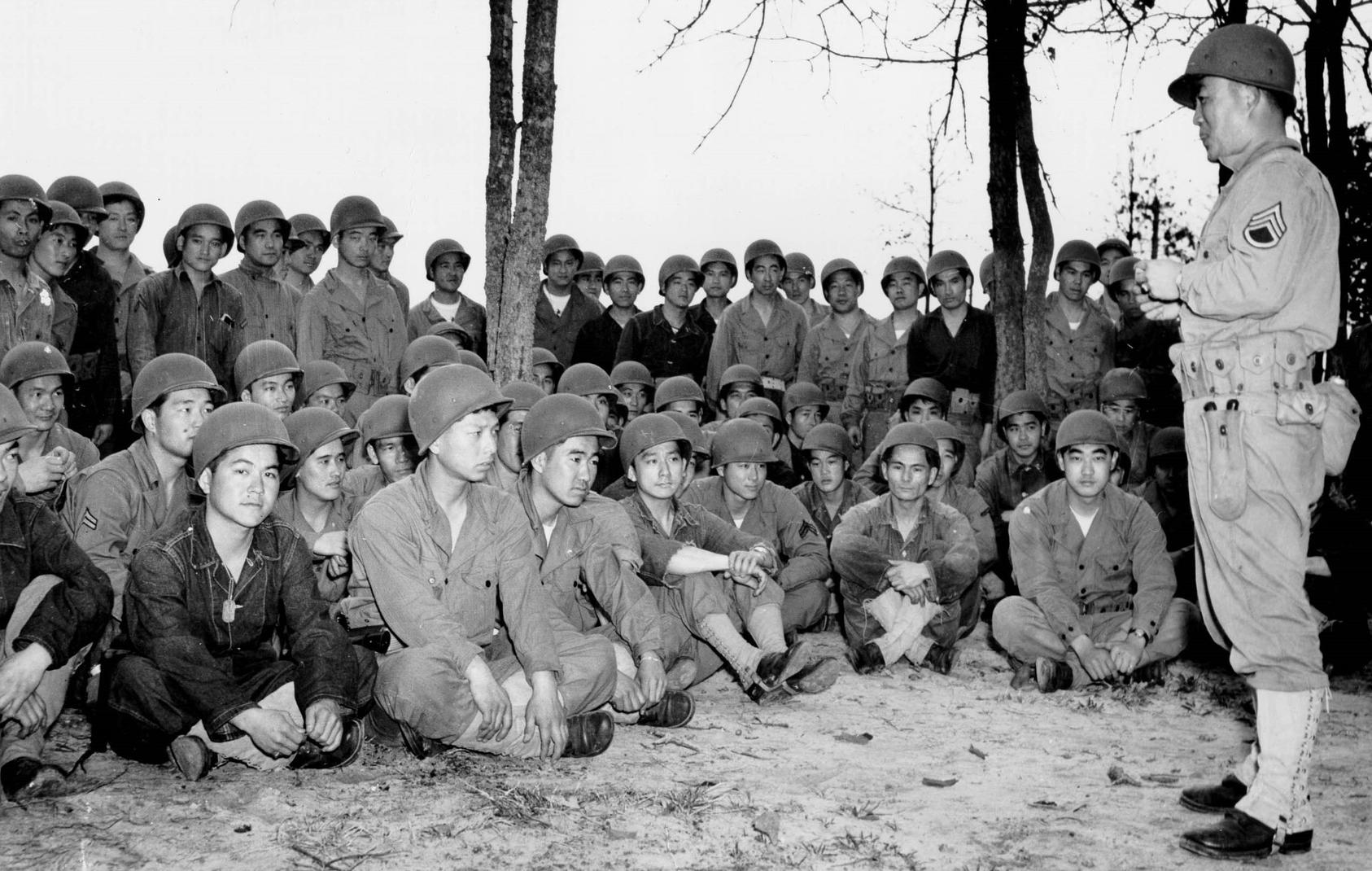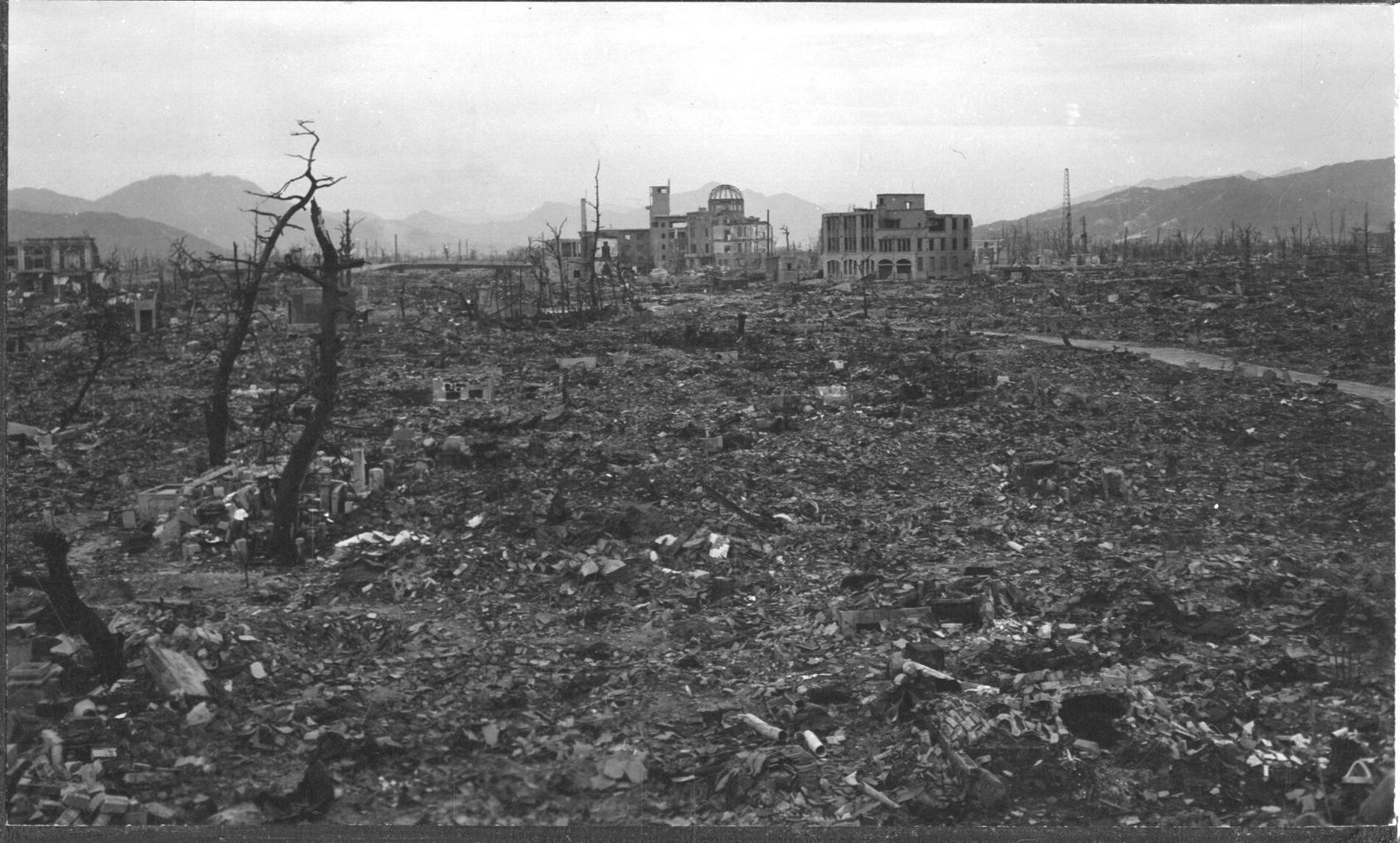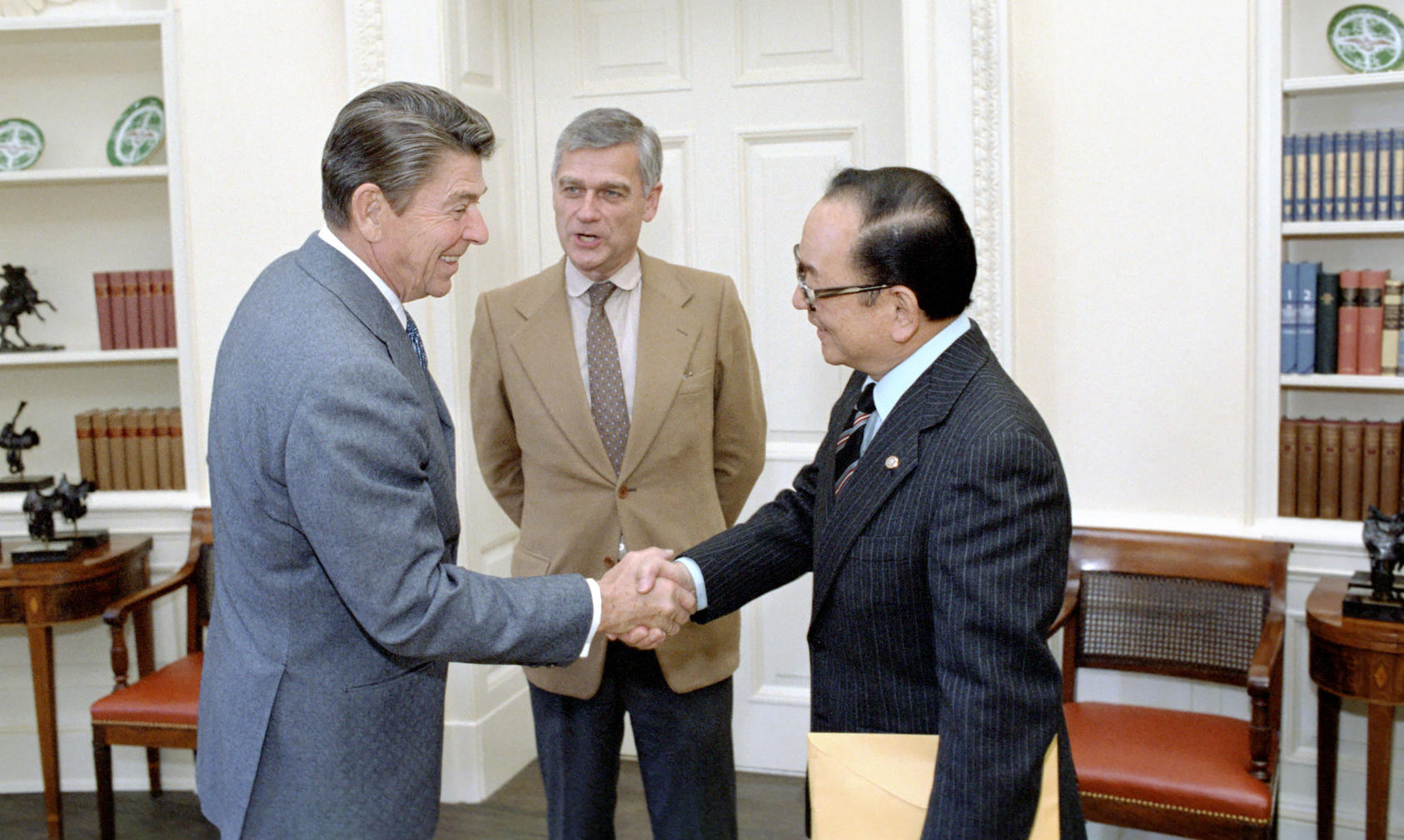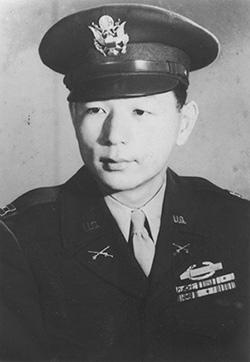This November 11 marks 100 years since the World War I armistice that Americans commemorate as Veterans Day. With the nation, the U.S. Institute of Peace honors those who have served in America’s armed forces and, especially, their sacrifices in times of war. These men and women know better than most of us the terrible costs we face when human conflict turns violent.

Veterans Know the Costs of War
This sharp, personal understanding of the costs of war led veterans in Congress to found the U.S. Institute of Peace. Two of their leaders were senators—Mark Hatfield of Oregon and Spark Matsunaga of Hawaii—who had fought World War II with a grittier, more hazardous title: “Lieutenant.”
Hatfield had grown up an evangelical Baptist in a small Oregon town, the son of a railroad blacksmith and a schoolteacher. When Japan bombed Pearl Harbor in 1941, Hatfield immediately joined the U.S. Naval Reserve and accelerated his college studies to start combat training. Under shellfire in the murderous combat at Iwo Jima and Okinawa, Hatfield sailed landing craft carrying Marines to the beaches—and the wounded back to the ships.
Following the Japanese surrender, 23-year-old Lieutenant Hatfield received orders to sail into the port of Hiroshima and survey the effects, then little known, of the first atomic bomb detonated in war. Where he and his crew expected to find shattered buildings, they found only a flattened moonscape peopled by a few gaunt survivors clothed in rags.

"There was a deathly silence," Hatfield told an interviewer, "a total absence of life. It was like something before creation." As the Americans surveyed the city, a teenage boy appeared on a working bicycle and gave Hatfield a ride through the devastation.
Hatfield was shaped both by his witness of what nuclear war now means, and, he said, by his encounter “with people you'd been conditioned to see only as the enemy, as someone to be destroyed.” He said: “I could almost feel the hate flow out of my system. … It was one of those things that I can only describe as a spiritual experience.”
Hatfield’s personal understanding of war would shape his vision of U.S. national security, driving his insistence on strong American leadership in building stability and peace internationally.
A Demand to Serve
Spark Matsunaga was a nisei—a child of Japanese immigrants. His parents labored on a rural Hawaii sugar plantation; his father was a Shinto priest. Matsunaga worked as a stevedore and earned money for college. As an ROTC cadet he saw war looming with Japan and, he, too, volunteered for active duty.
Lieutenant Matsunaga was the acting commander of his company on the island of Molokai when Pearl Harbor was bombed. But soon, as America interned Japanese-American citizens out of suspicion over their loyalties, the Army ordered the disarming of its nisei troops and shipped them to a camp in Wisconsin.
Despite the internment, Matsunaga and other niseis demanded an equal right to defend the nation. They eventually formed units that were highly decorated for heroism in the European theatre. Leading Company D of the 100th Infantry Battalion in assaulting a hill at Cassino, Italy, Matsunaga was seriously wounded by multiple landmine explosions. He would be awarded the Bronze Star.
“My father went to war with his closest friends, and he saw many of them killed and maimed in battle,” Matsunaga’s son, Matt Matsunaga, said in an interview. “Realizing the tragedies of war, he spent the rest of his life working for peace.”
War in the Global Village
By the 1980s, Hatfield and Matsunaga, in opposing political parties, had risen to senior positions in the U.S. Senate. They joined other veterans—many in Congress, others in grassroots organizations—to lead in founding the U.S. Institute of Peace.
Hatfield and Matsunaga helped write the Institute’s mandate “to promote international peace and the resolution of conflicts among the nations and peoples of the world without recourse to violence.” USIP’s staff, including military veterans and other survivors of war, uphold this mission as a daily acknowledgment of the extreme costs of violent conflict—and of our debt to those who have borne it.

In USIP’s three decades, our researchers, trainers, mediators and other specialists increasingly have pursued our mission in the same violent conflict zones as U.S. military personnel—and for the same reasons. We all can see the changes that ever more tightly bind our world—from instant global video and social media to intercontinental missiles and a shifting climate. In this global village, no war is safely distant. Chaos in Yemen and Syria, or threatened war in Korea, pose risks to us all.
A Duty to Veterans
The wartime experiences of USIP’s own veterans, and others, show us all the imperative to prevent conflicts from turning violent whenever possible. And when we must pass through war, the lives we forfeit obligate us to consolidate the hard-won peace by reconciling war-divided communities.
This work of preventing war and building peace is not simply USIP’s congressional mandate; it is a duty to which Veterans Day, and the sacrifices of our compatriots, summon us.
For months after being wounded in 1943, the young Lieutenant Spark Matsunaga lay hospitalized. A man who sometimes spoke his sense of duty through poetry, Matsunaga wrote a passage in his convalescence that all Americans might read now, as we consider our own duties on this Veterans Day:
When in the light of thought I ask
Myself; Just who am I and what,
What lasting imprints good or ill,
Have I for future mortals wrought?





